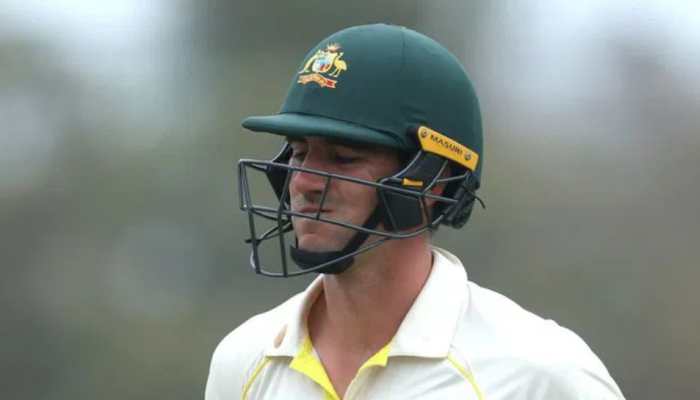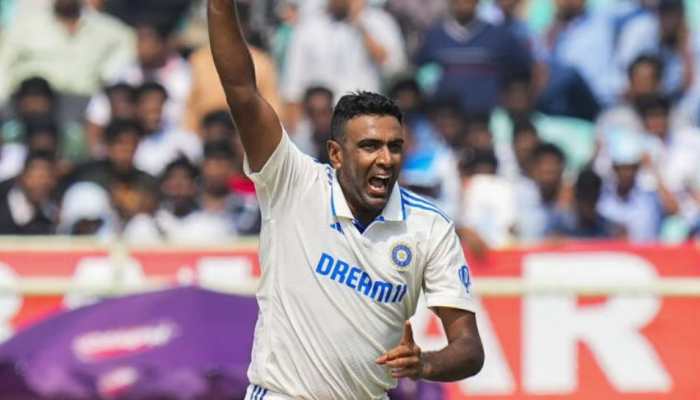Yashwant Sinha, the Economy of India and the Bharatiya Janata Party
And this is not the first time someone is pointing to the imminent crisis — an economic slowdown is not Lord Voldermort’s name that can’t be uttered. It needs to be identified and dealt with.
Trending Photos
)
New Delhi: Perhaps it's best said in Gujarati - Vikas gaando thyo chhe (development has gone haywire).
Dr Manmohan Singh said it. He should know. He was the finance minister who ushered in reforms in India and the prime minister for 10 years. P Chidambaram said it. He might know a thing or two about the state of the Indian economy too. After all he was the Finance Minister for in four different stints adding up to 7 years between 1996 and 2014. But the downward spiral in the economy is a figment of their imagination of perhaps a function of their ‘deshdroh’ (anti-national sentiment). How can the economy be not doing well? It’s a matter of national pride — to say that the state of the economy is anything but good is anti-national.
But what about Yashwant Sinha? He was the FinMin in the Vajpayee government between 1998 and 2002. Damn! Difficult to brand this one as a ‘anti-national’. So, what’s the plan here? Wait a minute… his son is a minister in the government. Let’s set up son vs the father — matter solved.
So here it is then folks - the generation gap of our times.
Father: The economy is on a downward spiral, is poised for a hard landing. Many in the BJP know it but do not say it out of fear…
Son: New economy for new India… Fundamental changes put in place for an open, transparent, competitive and innovation-driven economy.
Father: …a badly conceived and poorly implemented GST has played havoc with businesses and sunk many of them and countless millions have lost their jobs with hardly any new opportunities coming the way of the new entrants to the labour market.
Son: GST, demonetisation and digital payments are game-changing efforts to formalise India’s economy. Transactions that were taking place outside of the tax net and in the informal sector are now being brought into the formal sector.
Father: For quarter after quarter, the growth rate of the economy has been declining until it reached the low of 5.7 per cent in the first quarter of the current fiscal, the lowest in three years. The spokespersons of the government say that demonetisation is not responsible for this deceleration. They are right. The deceleration had started much earlier. Demonetisation only added fuel to fire.
Son: …one or two quarters of GDP growth and other macro data are quite inadequate to evaluate the long-term impact of the structural reforms underway.
Father: Economies are destroyed more easily than they are built. It took almost four years of painstaking and hard work in the late nineties and early 2000 to revive a sagging economy we had inherited in 1998. Nobody has a magic wand to revive the economy overnight. Steps taken now will take their own time to produce results.
Son: Unlike the first and second generation of reforms, this third generation of reforms balances a better life for all Indians with the requirements of an advanced, sophisticated 21st century economy.
I’m not an economist nor was meant to be… am a mere journalist, one that will do, to swell an opinion or two. So in this war of ‘edits’ here are my "sweeping conclusions from a narrow set of facts.”
I agree with Mr Sinha when he says: “The methodology for calculation of the GDP was changed by the present government in 2015 as a result of which the growth rate recorded earlier increased statistically by over 200 basis points on an annual basis. So, according to the old method of calculation, the growth rate of 5.7 per cent is actually 3.7 per cent or less.” It is plain math that adds up.
In a recent report, the State Bank of India said India’s GDP growth was expected to decline in the first quarter of the current fiscal, but the “free fall” in the numbers shows that the problem is more structural than transient. “Though there has been a lot of talk about manufacturing destocking ahead of GST and its impact on GDP, a significant destocking in both consumer as well as investment intensive sectors was already taking pace in 2016-17,” adding that with fiscal deficit touching 92.4% of the budget estimate by the end of July, the government may cut expenditure to meet the 3.2% target.
And this is not the first time someone is pointing to the imminent crisis — an economic slowdown is not Lord Voldermort’s name that can’t be uttered. It needs to be identified and dealt with.
So, whether the son rubbishes the father’s claims or not, and the senior Mr Sinha’s dig at Finance Minister Arun Jaitley aside, the premise of his arguments would be hard to debunk. Yashwant Sinha, unlike other senior leaders, isn’t a part of the BJP’s ‘Margdarshak Mandal’ — but in putting pen to paper, he has perhaps done some much needed ‘margdarshan’. But is this Marg clearly visible from Lok Kalyan Marg and Ashoka Road?
(The author Prasad Sanyal is the Group Editor, Digital, ZMCL. Opinions expressed are the personal views of the author and do not reflect the views of ZMCL.)
Stay informed on all the latest news, real-time breaking news updates, and follow all the important headlines in india news and world News on Zee News.
Live Tv







)
)
)
)
)
)
)
)
)
)
